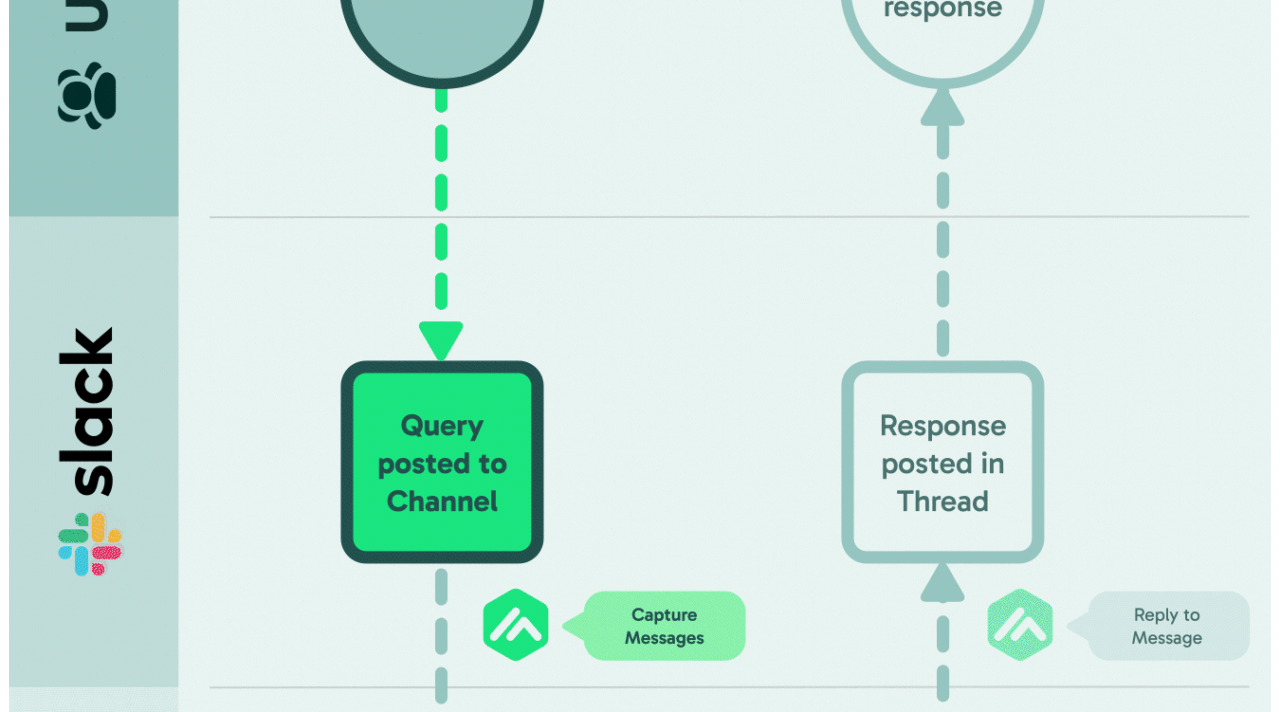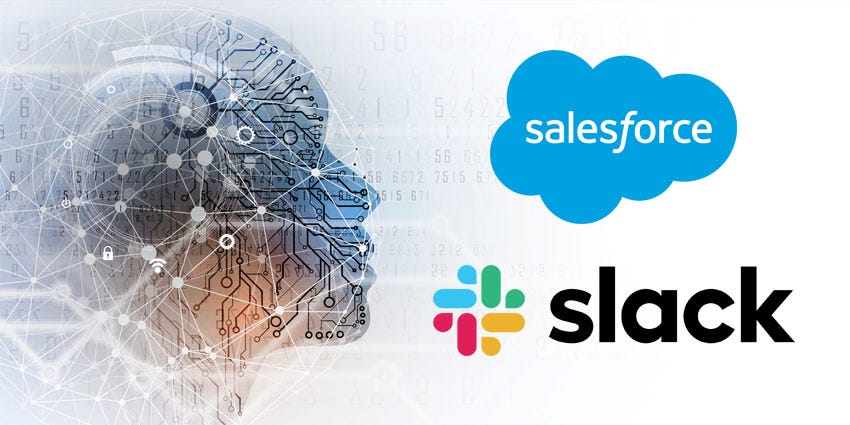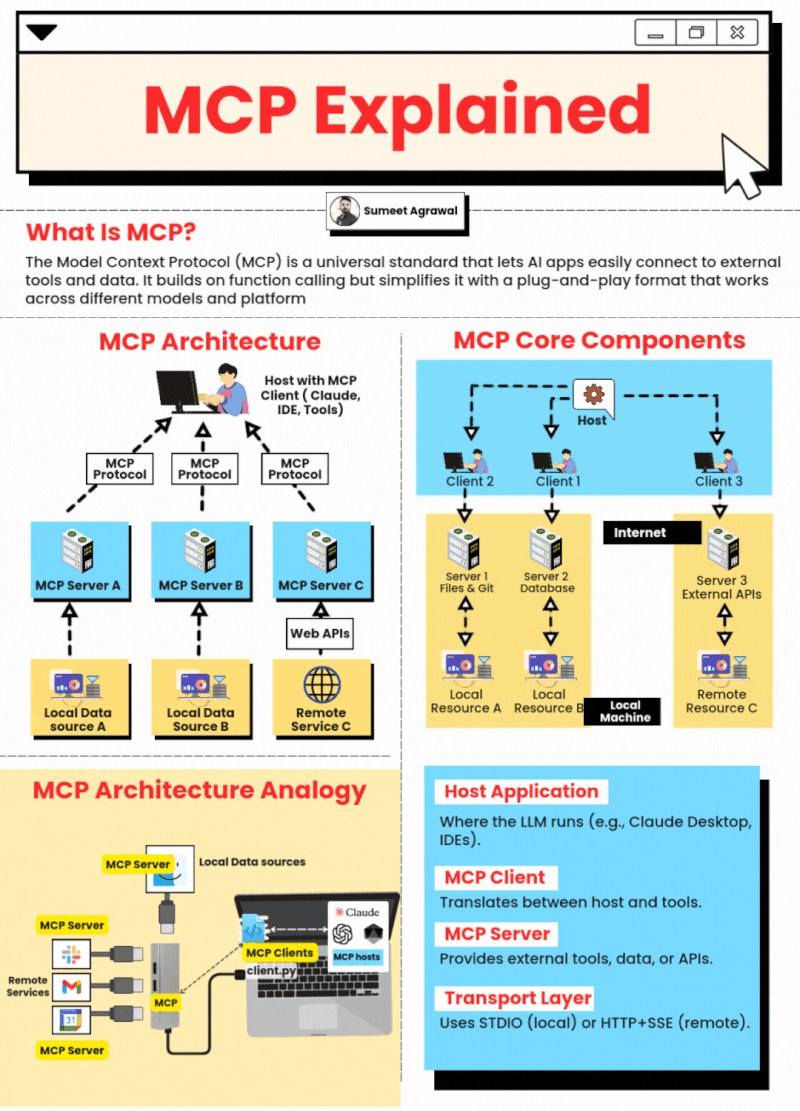
AI: Enterprise Data the next AI integration battle. RTZ #793
OpenAI apparently runs on Slack, just as the AI industry runs on Data. And therein lies the rub. Let me explain.
I’ve long discussed AI Data as a key separate part of the AI Tech Stack (see Box 4) below), both organically and synthetic. It’s one of the key distinctions vs prior tech waves.
And it’s critical role in truly Scaling AI to its ultimate possibilities. Both online and in the physical world.
But the quest for AI Data is hitting a pay wall of sorts in the Enterprise. Particularly on mission critical enterprise apps like Slack, owned by the mega-SaaS (Software as a Service) company Salesforce.com. Headed of course by its founder/CEO Marc Benioff, who of late is all in on this AI Tech Wave. And Slack has become a case study for the AI industry in the enterprise at this point in 2025.
With OpenAI in a starring role.
The Information lays it out well in “The Enterprise Data War Hits OpenAI”:
“Slack is the glue that holds OpenAI together: Everyone at the 3,000-person company constantly uses the messaging app to discuss their work, former employees have said.”
“So perhaps it’s no surprise that as OpenAI tried to turn ChatGPT into a core enterprise productivity app that connects to all the other apps people use for work, it wanted customers—and OpenAI employees!—to be able to access their Slack messages and files directly from the chatbot.”
And the project got underway a fair bit:
“Last year, OpenAI and Slack began discussing such a ChatGPT-Slack integration. And earlier this year, OpenAI engineers worked on the integration at the same time they were connecting other apps such as Gmail, Google Drive and GitHub to ChatGPT, according to a person with knowledge of the project.”
“Some ChatGPT customers even were able to test the feature, allowing them to search Slack messages and files from the chatbot.”
Then a hard road-block from the top down:
“But weeks before OpenAI was planning to ship the enterprise app integrations in March, managers informed the engineers that the Slack integration was no longer possible, according to a person who has worked at the company. The engineers weren’t told why.”
“But it could be related to an escalating data war between AI firms and traditional software apps, as the apps increasingly view AI firms as a competitive threat. Slack’s parent company Salesforce decided earlier this summer to limit AI firms’ ability to access Slack customer files even when the customers give them permission to do so, hurting startups such as Glean.”
I’ve discussed Glean’s headway into the AI Enterprise Search business, just as its namesake founder/CEO Aravind at Perplexity has done in the Consumer AI Search space. Slack integration would be a boon for both companies. Besides OpenAI.
“OpenAI could increasingly pose a competitive threat to enterprise apps including Slack, especially if it releases the multi-user chat and collaboration functionalities it’s already developed. (Spokespeople from OpenAI and Salesforce didn’t have anything to add when we reached out.).”
And it points to another challenge in the AI Data space.
And it’s a situation that is adjacent to the ongoing copyright negotiations and litigation going on with the broader content/publisher industries. Over ‘Fair Use’ vs LLM AI data companies’ access to their content for both AI training and inference.
“The OpenAI-Slack dynamic is another example of how data sharing, which was the lifeblood of enterprise applications like Salesforce, Notion, Figma and Atlassian, has now become a liability as smaller startups use the apps’ data to develop competing products.”
“Decisions to cut off data could upset customers who want to use AI services like ChatGPT and Glean to access their data, no matter where it is stored.”
Intermediate solutions are not quite hitting the spot:
“Many of the AI startups affected by the SaaS industry’s data war against them are developing workarounds, but it isn’t clear whether OpenAI plans its own workaround. It’s possible that Slack will start allowing some outside firms to access messages through a new application programming interface it is developing, but the messages may not include the most recent messages. Salesforce has said that the new search API it’s working on will allow other firms to access Slack messages and files without having to copy or move the data.”
“So where is this war heading?”
Part of the solutions may be new open source sharing technologies like MCP:
“The biggest AI developers as well as cloud providers like Google and Microsoft are adopting open standards like Model Context Protocol so their chatbots can connect to Gmail and Microsoft-owned GitHub, for instance. These companies think they stand to benefit the most from such data sharing because it lets them provide value to customers directly as opposed to third-parties finding ways to do that.”
“It’s not clear how this will shake out, but data-sharing has been crucial for the adoption of traditional enterprise software and it will, in some form, play a similar role in AI applications.”
A lot remains to be worked out. Both to share data satisfying all stakeholders, across countless AI models large and small.
But it’s noteworthy that we’re seeing a data roadblock showing up now in the Enterprise in these early days of this AI Tech Wave. Stay tuned.
(NOTE: The discussions here are for information purposes only, and not meant as investment advice at any time. Thanks for joining us here)










